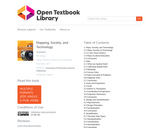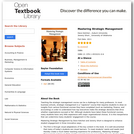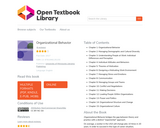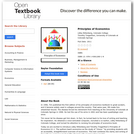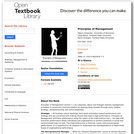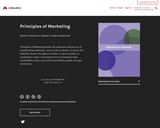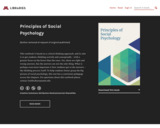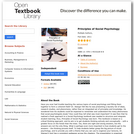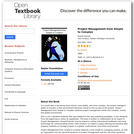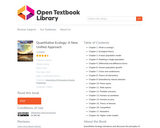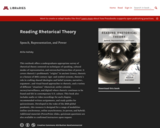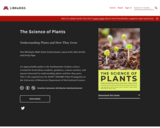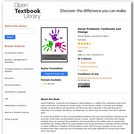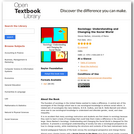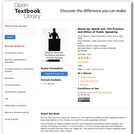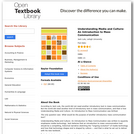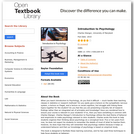
When you teach Introduction to Psychology, do you find it difficult – much harder than teaching classes in statistics or research methods? Do you easily give a lecture on the sympathetic nervous system, a lecture on Piaget, and a lecture on social cognition, but struggle with linking these topics together for the student? Do you feel like you are presenting a laundry list of research findings rather than an integrated set of principles and knowledge? Have you wondered how to ensure your course is relevant to your students? If so, then you have something in common with Charles Stangor.Charles Stangor's Introduction to Psychology utilizes the dual theme of behavior and empiricism to make psychology relevant to intro students.Charles wrote this book to help students organize their thinking about psychology at a conceptual level. Five or ten years from now, he does not expect his students to remember the details of most of what he teaches them. However, he does hope that they will remember that psychology matters because it helps us understand behavior and that our knowledge of psychology is based on empirical study.This book is designed to facilitate these learning outcomes, and he has used three techniques to help focus students on behavior:Chapter Openers: Each chapter opens showcasing an interesting real world example of people who dealing with behavioral questions and who can use psychology to help them answer them. The opener is designed to draw the student into the chapter and create an interesting in learning about the topic.Psychology in Everyday Life: Each chapter contains one or two features designed to link the principles from the chapter to real-world applications in business, environment, health, law, learning, and other relevant domains. For instance, the application in Chapter 7 on Development, “What makes good parents” applies the concepts of parenting styles in a mini-handbook about parenting, and the application in Chapter 3 is about the difficulties that left-handed people face performing everyday tasks in a right-handed world.Research Foci: Introduction to Psychology emphasizes empiricism throughout, but without making it a distraction from the main story line. Each chapter presents two close-ups on research -- well articulated and specific examples of research within the content area, each including a summary of the hypotheses, methods, results, and interpretations. This feature provides a continuous thread that reminds students of the importance of empirical research. The research foci also emphasize the fact that findings are not always predictable ahead of time (dispelling the myth of hindsight bias), and also help students understand how research really works.Charles Stangor's focus on behavior and empiricism has produced, Introduction to Psychology, a text that is better organized, has fewer chapters, and is somewhat shorter than many of the leading books.
- Subject:
- Psychology
- Social Science
- Material Type:
- Textbook
- Provider:
- University of Minnesota
- Provider Set:
- University of Minnesota Libraries Publishing
- Author:
- Charles Stangor
- Date Added:
- 01/01/2010
